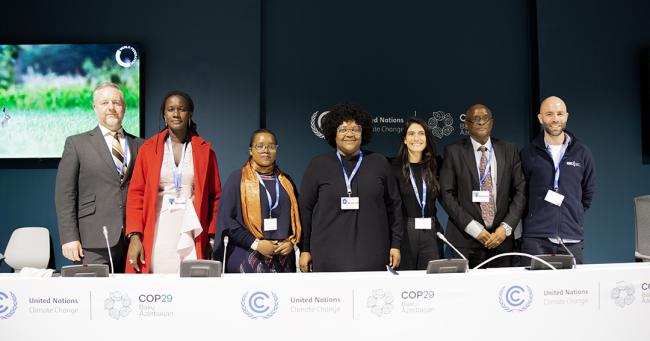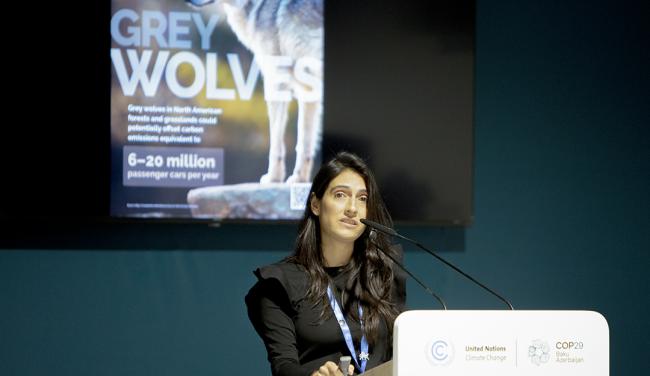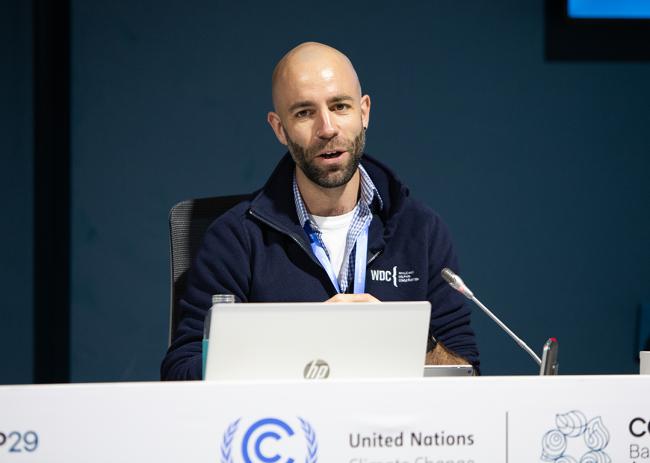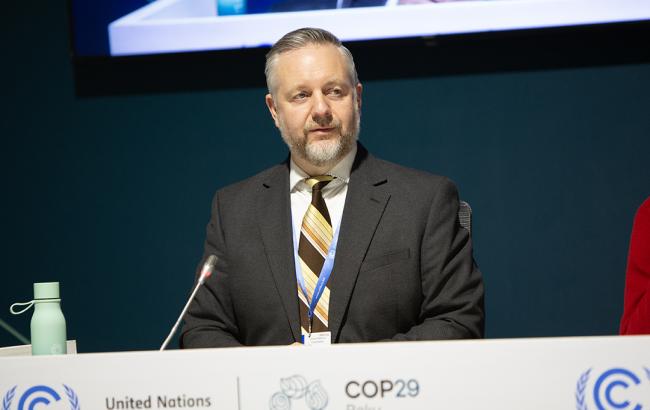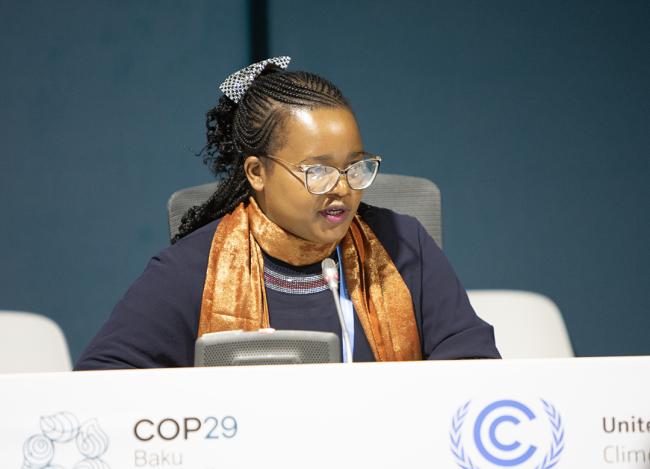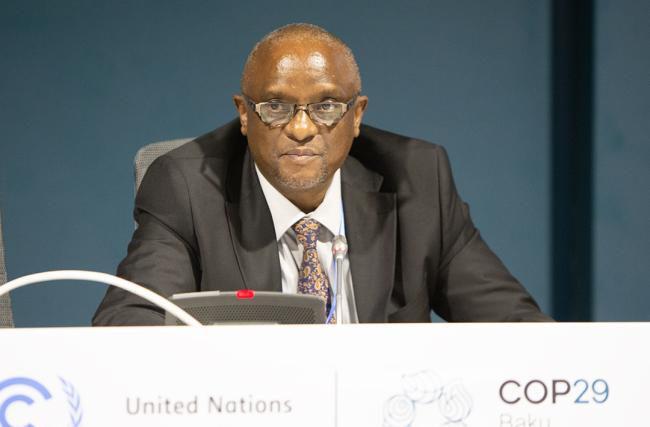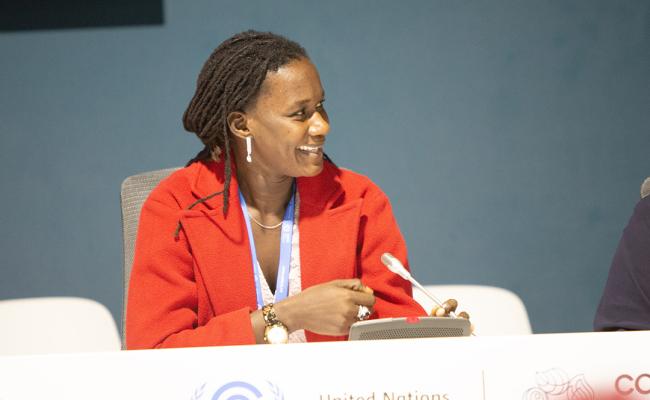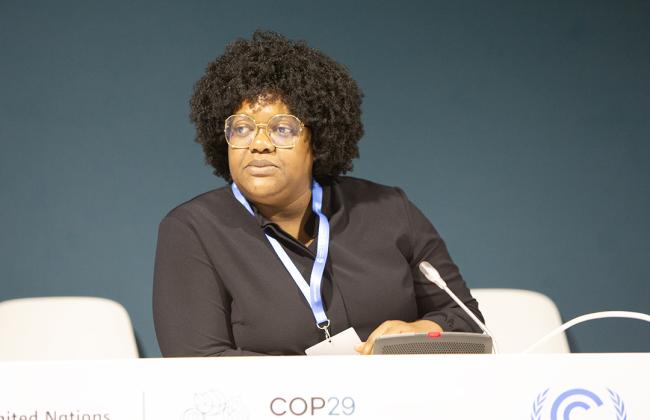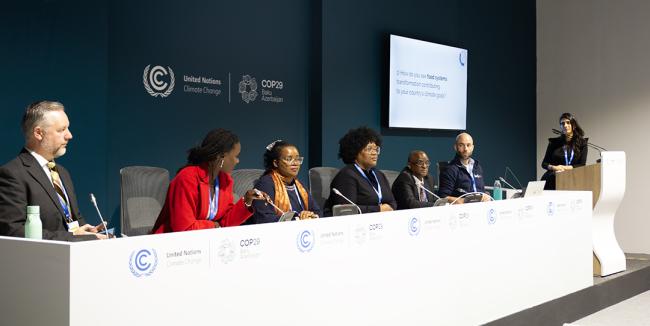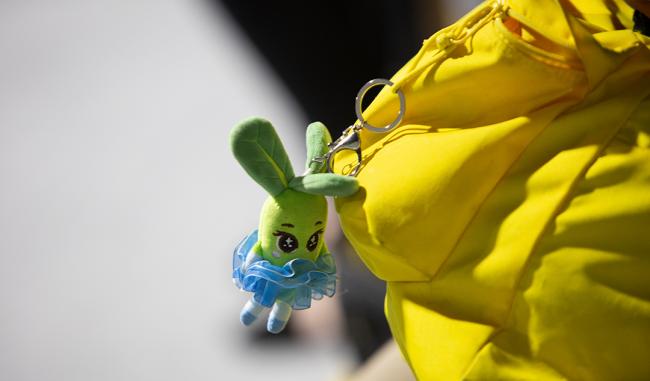About
It is time to rethink the role of wildlife and food transformation in tackling the global climate crisis. From wildlife protection and conservation to innovative policies on food production, this event highlighted policy actions that integrate biodiversity and food systems in country’s climate plans.
Biodiversity and food systems are vital in advancing climate goals. This session outlined practical steps for governments to align food systems transformation with biodiversity initiatives and climate targets, emphasizing their integration into Nationally Determined Contributions (NDCs).
Silvia Mantilla, World Federation for Animals, moderated the event. In her opening remarks, she highlighted the role of wildlife in climate action, citing several examples of animals that help with carbon sequestration and offset carbon emissions, from sea otters to forest elephants.
In setting the scene, Ed Goodall, Whale and Dolphin Conservation, noted the significant potential of animals as a “climate tool,” acting as natural carbon capture and storage systems that can contribute to reducing emissions while maintaining healthy ecosystems. Citing the example of Yellowstone National Park in the US, Goodall shared how the introduction of grey wolves in the park brought stability and balance to its ecosystem. Given the potential of wildlife, he explained that their protection and conservation should be prioritized by enforcing wildlife trafficking laws, shutting down trafficking routes, and expanding protected areas both on land and in water.
In looking at intersectionality among wildlife, food systems, and climate, Lasse Bruun, UN Foundation, discussed: the need for national policies that focus on strengthening the food and agriculture sector; holistic, transformative policies; and “equitable, climate-aligned initiatives.” Bruun encouraged people to “apply an equity lens” when considering patterns of global food production and consumption and discuss “the inherent value of nature” when utilizing wildlife as a climate solution.
In response to a question on integration of wildlife protection and conservation contributing to a country’s climate goals, Patience Gandiwa, Zimbabwe Parks and Wildlife Management Authority, said that, from the perspective of Zimbabwe, reaching these goals is “almost impossible” without taking into account biodiversity. She noted that her country’s National Adaptation Plan (NAP) specifically mentions biodiversity as an adaptation strategy. As both climate and biodiversity “do not know any boundaries,” she stressed the need for planning for biodiversity conservation at the appropriate scale, namely in a transboundary fashion.
Shadrack Ngene, Ministry of Tourism and Wildlife, Kenya, emphasized wildlife's critical role in achieving Kenya’s NDCs. He said the government protects 19% of its land, including 8% in parks and reserves and 11% in community or private conservancies, which is vital for biodiversity and climate goals. Other efforts include water provision for elephants and feeding programmes for species like zebras during droughts. Kenya, he explained, aims to expand community conservancies from 11% to 20% by 2030, enhancing carbon sinks and fostering sustainable tourism through governance and land-use plans.
Sira Secka, Founder, Enenn Foof Excellence Foundation, highlighted the role of food systems in advancing The Gambia’s climate goals. She emphasized adaptation in agriculture to ensure food access and reduce reliance on imports, such as frozen meat. Efforts include minimizing food loss, leveraging technologies, and promoting resilient development, she said. Secka advocated for integrating health into food systems and fostering local farming. She underscored the need for equitable, locally-driven solutions in food systems transformation.
Paula Coelho, Secretary of State for Climate Action and Sustainable Development, Angola, shared Angola’s national strategy for climate change, which focuses on different programmes, including: environmental education; adaptation plans, risk disaster management; and establishment of national commissions that focus on climate change, biodiversity, and desertification. She stated that the government also requires companies to deliver on development programmes and engages with civil society to ensure inclusive programmes that tackle poverty issues.
In response to a question for panelists on barriers to integrating wildlife conservation or food transformation into climate plans, Gandiwa pointed to barriers in Zimbabwe, which include: human-wildlife conflicts in the country; slow pace of progress in implementing the country’s plans; lack of tools and technology; and lack of long-term financing. She lamented this lack of long-term financing hinders Zimbabwe from scaling up successful interventions and getting the resources needed to do so.
Ngene stated the following barriers for Kenya: failure to recognize wildlife conservation as a climate change solution; lack of community participation and willingness to adopt changes; and increasing human population. All these, he stressed, go hand in hand with the provision of financial support.
Secka emphasized that finance is the top barrier for including wildlife conservation or food transformation in Gambia’s climate plans because the lack of finance makes it difficult to implement projects. Other barriers include lack of technology, need for capacity building, and lack of knowledge on how to utilize resources, she added.
Coelho stated that land use for agriculture and communities and competition for financing across all programmes are barriers to developing them as part of climate strategies. She cited the need for capacity building and public awareness about how to transform the food and agriculture sector in the face of climate change.
Reflecting on what they had heard from other panelists, Bruun stressed the need to de-risk the intersection of food production and wildlife protection. Goodall called for more data and metrics on the role of animals in climate mitigation and adaptation.
In a Q&A with the audience, panelists discussed the role of artificial intelligence in assisting with early warning systems and species monitoring, as well as the need for co-financing the deployment of such technologies.
Asked to deliver, as concluding thoughts, key messages to negotiators, panelists noted:
- the need to think “beyond emissions,” noting that biodiversity, especially wildlife, is underrepresented in climate discussions;
- that “implementation matters,” calling for prioritizing actionable means of implementation and closing the finance gap to achieve tangible outcomes at COP 29; and
- including ecological perspectives and food system solutions in loss and damage negotiations, which “have been disappointing so far.”
Organizer: WFA
Contact: Silvia Mantilla I silvia.mantilla@wfa.org
Website: https://wfa.org/
To receive free coverage of global environmental events delivered to your inbox, subscribe to the ENB Update newsletter.
All ENB photos are free to use with attribution. For 2024 UN Climate Change Conference Baku - Side Events , please use: Photo by IISD/ENB | Angeles Estrada Vigil

